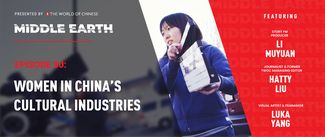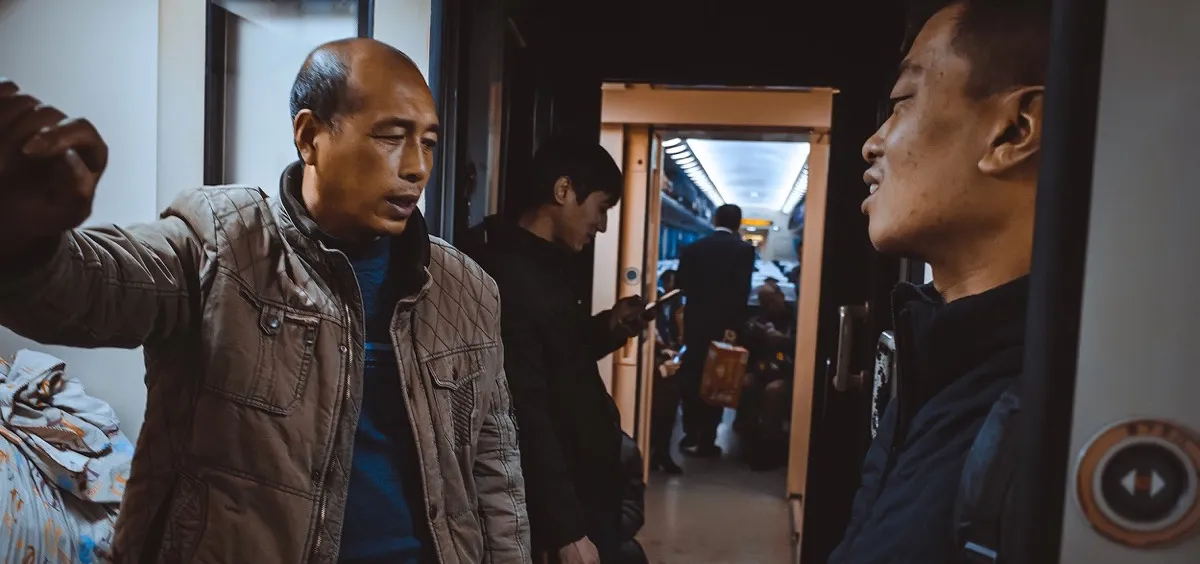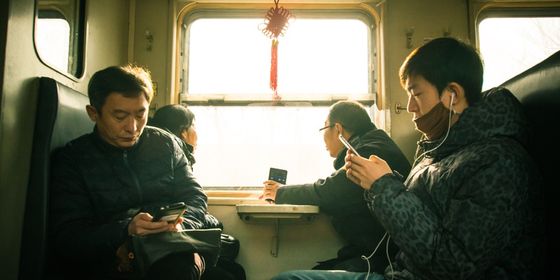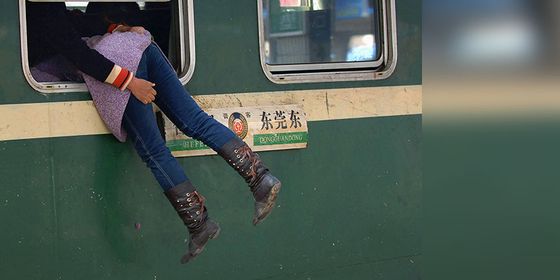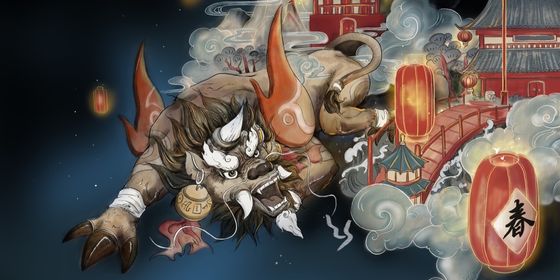A boat trip gone awry and kindness from strangers: more reminisces from China’s busiest travel season
This story is published as part of TWOC’s new collaboration with Story FM, one of the most renowned storytelling podcasts in China. In January, Story FM collaborated with the audio platform Himalaya to collect listeners’ unforgettable anecdotes of travel during the Spring Festival season (chunyun). As many Chinese are grappling with Covid-19 testing and quarantine rules in order to spend the holidays with their families, and even more are unable to return home due to pandemic control measures, we hope these stories—packed with thrills, romance, and bizarre coincidences—can alleviate the feelings of exhaustion for travelers and homesickness for those staying put.
These anecdotes have been translated from Chinese by TWOC and edited for clarity. Part 1 of the series can be found here. They can be listened to on Story FM’s channel on Himalaya (in Chinese only).
4
Our Version of Lost on Journey, Three Decades Early
Normally, the trip would have taken only one day. That year, it took a total of four.
My name is Dongdong, and I’m 49. I currently live in Changzhou, Jiangsu. I am a manager in my company.
It was chunyun of 1991, already 30 years ago. I was going to college in Wuhan that year. When we went on winter break in February, I was going to head home to Jinhu to celebrate the New Year.
Jinhu is in the center of Jiangsu province, about 100 kilometers from Nanjing. Younger folks who enjoy the benefits of the high-speed rail may not understand, but back then there wasn’t a direct train from Wuhan to Nanjing. At the time, the best way to go between these two riverside cities was by boat.
There was another reason why I liked traveling by boat: the environment on board. There was a reading room, a movie room, and you could take in the scenery from the deck. Over a dozen or so hours, you could watch the sunrise and sunset, and see gulls flocking behind the ship. If you’re lucky, you could even see pairs of black river dolphins leaping and splashing down the river—a wondrous sight.
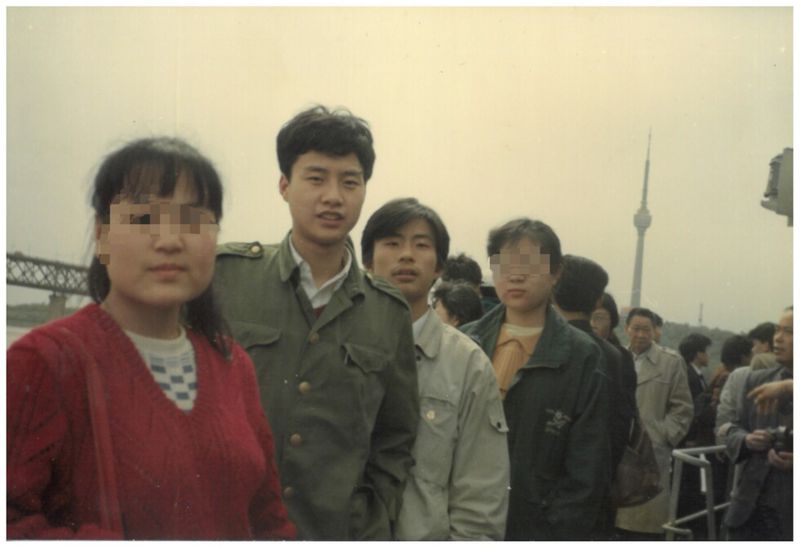
Dongdong, third from left, with classmates onboard a Yangtze passenger ship. The Wuhan Yangtze Great Bridge and Guishan Television Tower are in the background.
We got underway at 11 p.m. or 12 a.m. the day of the trip. After boarding, I chatted for a while with some schoolmates from my hometown, then went to bed. The next day I woke up at dawn in a daze and went to use the bathroom. All of a sudden I was falling, stumbling back a few steps before regaining my footing. I thought, that’s odd—these ships have always been very smooth, so why are we getting bounced around?
After a while, I heard a commotion and ran up to the deck. It turns out the ship had run aground. It struggled for a while before finally cutting the engines and resigning itself to its fate. We were able to get back on the river only at noon, when a tugboat came and towed us out. We were six hours behind schedule.
After arriving in Nanjing, I needed to rush over to the long-distance bus depot to buy tickets. The last bus to Jinhu was at 3 in the afternoon. I looked at my watch, and saw that I had just under two hours left.
Chunyun is always a busy time, and I managed with some effort to squeeze onto a city bus. But after only a couple stops, the bus had a flat tire, so I had to stand there with my huge backpack, waiting for another bus to come. I waited and waited, but no bus came. I did some quick calculation with my Jinhu mates. If we were going to wait in vain, we might as well run to the bus depot instead. But our estimate was off. We were still pretty far away, so we ended up huffing and puffing, half-running and half-walking for the better part of an hour to get to our destination.
It was already after 2, and the ticket line was very long. Just as I was calculating whether I’d be able to get on the last bus out, one of the guys from Jinhu came walking toward me, hanging his head. “No point in waiting; tickets are all sold out for today.”
That took the breath right out of me. I stood rooted to the ground for half a minute. Finally, I decided to go to the station exit to hitch a ride.
At 3, I saw the bus to my hometown pulling out, driving pretty slowly. I rushed over and banged on the door, asking the driver to let me on. The driver got irritated and yelled, “Stop banging! Why didn’t you buy a ticket?”
I said there were no tickets left. He said, “Who told you that? If you didn’t buy a ticket, I can’t let you on the bus.” Then the bus sped up, and I couldn’t keep up anymore.
I stood helpless by the road for several minutes, at a loss for what to do. Then I remembered my father. He was a company driver, and sometimes came to the provincial capital for work. I decided to call the gate at his company and ask if he was in Nanjing.
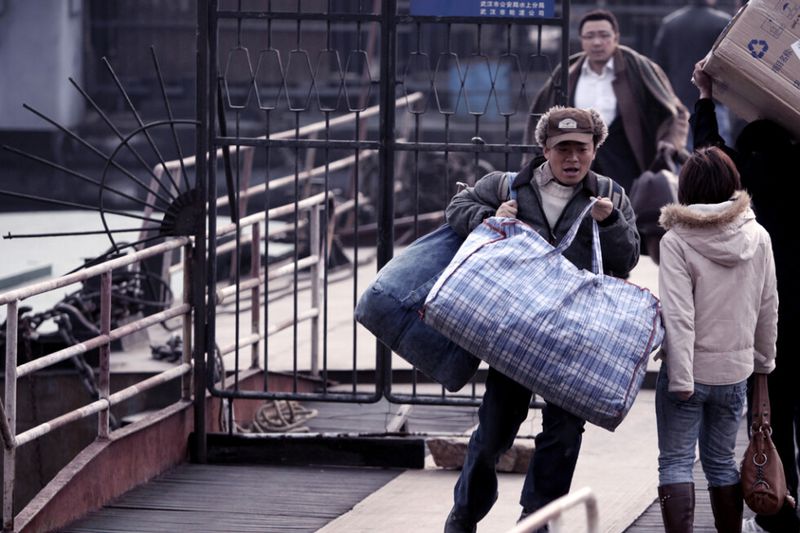
Movie still / Lost on Journey
Home phones were quite rare in the 90s, so it was very hard for people to communicate in real time. I found a public phone booth, one where you had to pay before you called. The security guard told me my father wasn’t in Nanjing, and he wasn’t at the headquarters either. There was no way of reaching him.
I should have given up at that point, put down the phone, and gone to buy a bus ticket for the next day. Instead, I would regret for a long time: I requested that the guard tell my father to wait for my call at 7 in the evening.
Eventually, my father told me that a company car was going to Nanjing for business the next day, and could give me a ride on the way back. He told me to wait patiently.
On the morning of the fourth day since I left my college campus, I arrived at the meeting point bright and early. I fixed my eyes on the road, and didn’t dare leave for even a moment. Around noon, I boarded the company car. When I saw that car driving toward me, I felt so relieved that I nearly cried.
In total, there were three people in the car: the driver, the team leader, and his assistant. Around 3 or 4 in the afternoon, after they had taken care of business, the assistant said that he had some relatives in Nanjing that he hoped to visit. He figured it would be easy to have dinner there before getting on the road. The team lead agreed.
We had quite a lavish dinner, the first proper meal I’d had in days. I remember that aside from the driver, pretty much everyone drank some baijiu. Riding our buzz, we got back on the road.
After crossing the Yangtze River Bridge, and thinking that I would be home that night, I put on the Red Dragonfly tape from The Little Tigers. Just as we were hearing, “We have already grown up, many dreams are still aloft,” the car braked hard. Then the windshield shattered with a bang.
Scared half to death, we rushed out of the car. The car was stopped at a four-way intersection. In front of us was a toppled bike and a person lying on the ground. I thought, Oh no, we’ve killed someone.
The team leader went up ahead, wanting to check out his injuries. Who could’ve guessed that as soon as he got close, the man stood up and slapped him in the face. He then started berating us for running the light. We did no such thing, so we started arguing with him. Then his colleagues came running up, all burly men. It looked like they were getting ready to beat us up.
The team leader called out, “Hey, stop fighting! Let’s say we ran the light, but are you hurt?”
The man got up and moved around. “Count yourselves lucky, it’s just my bottom that hurts.” He continued, “I’ve got a dozen or so century eggs in my bag that you crushed, so you’ll have to pay for them.”
It was only then that we saw there was a cloth bag on the hood of the car. The bag is what smashed our windshield.
Without another word, the leader pulled some money out of his pocket and murmured for us to get back in the car. We floored the gas and fled the scene.
As we drove away, I thought, those eggs must’ve been pretty solid to break that glass. Just as I was about to bring it up, I turned my head and saw everyone sitting with stiff faces. The mood was ruined. The driver was sure to feel some guilt about hitting someone, the lead was angry over getting a surprise slap, and the assistant maybe felt bad as well — if we hadn’t stopped for dinner with his relatives, maybe none of this would’ve happened.
After we had gone some distance, the team lead suddenly shouted, “Hang on, we can’t go back yet! If we go back like this, the company will think we’ve hit and killed someone. We have to fix things before we return.”
So we turned around yet again, to go to the car manufacturer in Yizheng, Jiangsu, where we spent the night. It wasn’t until the car was fixed at 1 p.m. the next day that we were able to leave.
When I got home, my mother already had dinner ready. Looking at that table of food, I nearly wept. Normally, the trip would have taken only one day. That year, it took a total of four.
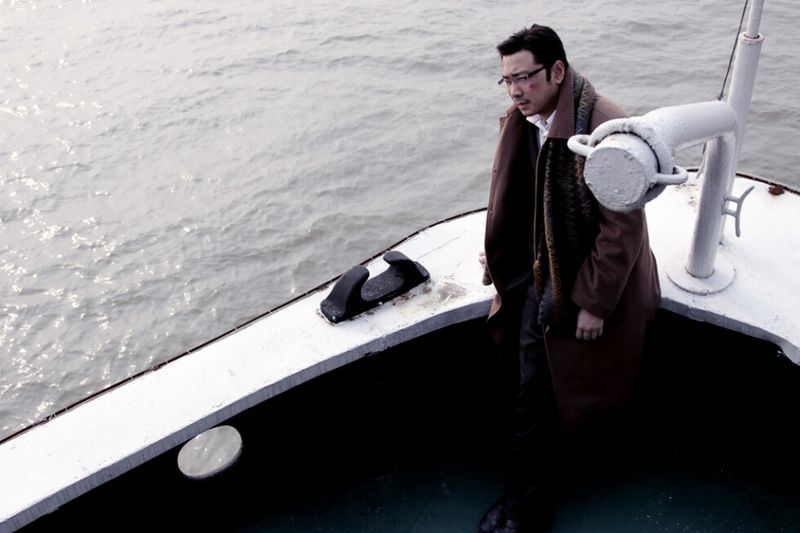
Movie still / Lost on Journey
From where I stand now, the whole situation came from a series of coincidences. But at the time, it really drove in the pain of traveling home from a distant place.
In the past 30 years, our transportation systems have gotten better and better, and this kind of thing should be happening less often. For the 10th anniversary of my graduation, it took only 10 hours by sleeper bus to get to Wuhan; on the 20th anniversary, it took only 4 hours by high-speed rail.
On the Yangtze River, there are only sightseeing cruises now. Passenger ships stopped running more than a decade ago.
5
50 Kuai
All the hardships of the road had been eased by this one stranger
My name is Xie Ting. I’m from Tongliao, Inner Mongolia, and I’m currently a furniture designer in Beijing.
The chunyun of 2011 is the one that left the deepest mark on me. I was in my first year of college at the time. After celebrating the Spring Festival at home, I was heading back to Wuhan to get ready for the new semester.
Back then the train schedule was pretty sparse, and it was my uncle who found someone to buy a pair of tickets for me. To go from Tongliao to Wuhan, I needed to make a transfer in Beijing, and the first leg alone was 14 hours overnight.
Anyone who has been through chunyun knows you need to make some preparations, like bringing your own collapsible stool. But I had no experience, so I didn’t bring anything, and could only stand.
At first, standing was not so bad, but after two or three hours it got to be too much. When I became too tired to stand, I sat down in the aisle and rested my head against the side of the seat. Since people were always moving up and down the aisle, I kept having to get up to let them by. Later, I was so sleepy that I couldn’t keep my eyes open, and would get up with my eyes closed to let them by.
The most hopeless thing about the whole journey was the time. After sleeping for a bit, you might think a lot of time had passed, but it would turn out to be only 15 minutes since the last time you checked your watch.
After suffering for a whole night, I finally arrived in Beijing. I went from Beijing North Station to Beijing West Station to catch the train to Wuhan. I thought there was no way I could stand for another night—I needed a sleeper bunk. I only had 120 kuai on me, thinking it would be enough for a meal or a small emergency. But it turned out that a sleeper cost an additional 110 kuai, so in the end I only had 10 yuan left.
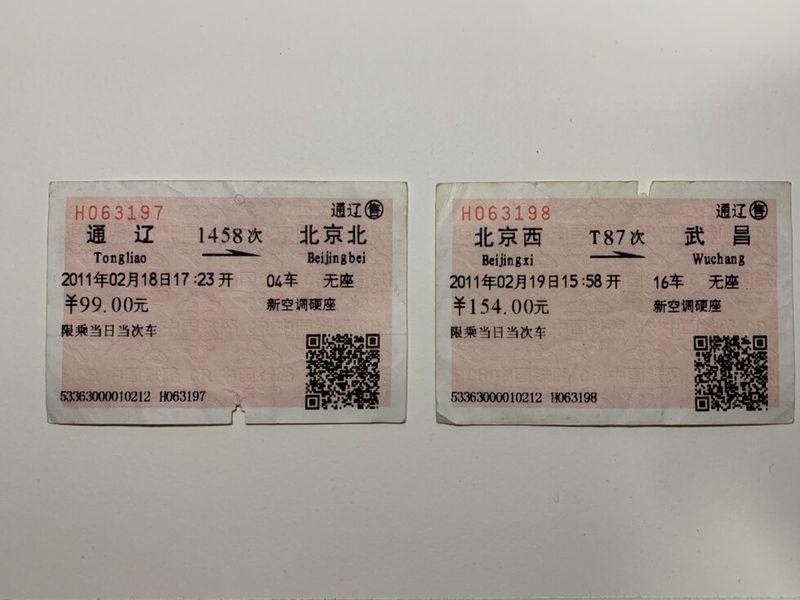
Xie Ting has held on to those train tickets after all this time
I dragged my luggage over to my bunk. I was on the bottom bunk, and across from me on the middle bunk was a man lying with his back toward me.
I called my family to let them know I was safe and well. As soon as I heard their voices, my inner strength collapsed. There was too much contrast between the warm cheer of home and my own miserable state. My tears started streaming down. I had stood up for a whole night, was out of money, hadn’t eaten dinner, and the train wasn’t due to arrive until 3 the next morning. How did I end up in this state?
After I got off the phone, the man in the middle bunk asked, “Are you a student? Where are you going for school?”
I told him I was going to Wuhan. He said, “That’s pretty dang far.” As he spoke, he pulled out a folding wallet, and took out two 20s and a 10. He handed them to me from his bunk, saying, “I don’t have that much on me, but here’s 50 kuai to get something to eat and call a cab once you’re in Wuhan.”
I kept telling him there was no need; but thank you. He said that he knew college was a tough time—he’d been through the same thing, and other people had helped him, so this was a way of paying it forward. I thought it just wasn’t right to take other people’s money, so I kept refusing. At last, he threw the money onto the table between us, turned his back to me, and didn’t say another word.
Later, I took the money. I was so moved I couldn’t hold back my tears. I felt an incredible warmth at that moment, like all of the hardships of the road had been eased by this one stranger.
After arriving in Wuhan, I used the cash to get myself some breakfast, but took the bus back to school. I kept the rest of the money in my wallet and have never spent it.
Separated now by ten years, I want to give thanks again to that chunyun of 2011. Thank you to that kind-hearted person who sent me his warmth and well-wishes.
Due to this year’s pandemic, I won’t be going home to celebrate. I wish all my family and friends good health, and hope that we can say goodbye to the pandemic in 2021.
Translated by J.Y. Gan
Cover image from VCG






